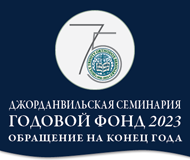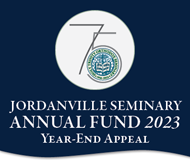News

FROM THE DIOCESAN ADMINISTRATION To all parishioners of the Resurrection church in Toronto, Ontario
28 May 2011
Beloved in the Lord brothers and sisters!
Christ is Risen!
In these days, when we still greet each other with a Paschal greeting, preparing for the approaching Feast of the Holy and Life-creating Trinity, we are in need of addressing you with this letter. Sorrow has visited your parish: you are being drawn into a schism. Now we must make efforts so that the Risen Savior in His mercy would pity us and give us the strength and fortitude to overcome the disorder at hand.
First, we would like to bring to your knowledge the documents, which – as we are informed – were not known to the majority of the parishioners, but only to a small group of people, striving for the right to administer the future of your parish, as well as all the Church property, without any supervision.
That is why it is especially important that each of you were given the unimpeded opportunity to know the very reason for the current state of affairs.
It is possible that the majority of the parishioners are not aware that the former parish rector, priest George Sachewski, broke all ties with his diocese, his Hierarch and his clergy brothers, long time ago. Therefore, after many attempts to clarify things with priest George, on 9/22 March, of this year, the Very Most Reverend Gabriel, Archbishop of Montreal and Canada, addressed to him the following letter, which stated:
“As your ruling Hierarch, I am pressed by necessity to address you with this letter, since all my efforts to correct you in private conversations, regretfully, did not bring any desired results. Among other things, we don’t even have an opportunity to meet with you very often… Demonstratively, you refuse to participate in Diocesan Great Lenten retreats, in Diocesan assemblies. You did not even grace us with a response to our directive, inviting you and your parish to attend the solemn celebration of the 90th anniversary of our Russian Church Abroad.
To add to the previously stated, you do not send the proper contributions into the Diocesan treasury, and did not pay attention to the circular directive, according to which all our parishes must purchase candles from the Diocese, a fact of which you cannot be ignorant.
/…/ I shall not quote the suitable paragraphs of the Book of Rules because I am convinced: You yourself know that we are speaking of disorder and even consciously vexing the Bishop. Such behavior is a bad example to our clergy and cannot be tolerated any longer.
Yet, what was it and what is it now that prohibits you from contacting me and telling me the reasons for the restless state of your spirit? Whence is this hostile irritability, which has engulfed you?
For the last time, I call upon you to come to your senses, to find a return to participation in the life of the Diocese. That will help you find peace of soul, which is so important during the saving days of Great Lent.
However, should you continue to be stubborn in your disobedience, I shall have nothing other to do, but to remove you from your post of rector in our Resurrection parish.
With hope for your speedy recollection, prayerfully, I wish you help and direction from the Lord.”
There was no answer, neither verbal, nor written, to this letter.
Only then, after the passing of almost one and a half months, the Very Most Reverend Gabriel was urged by his duty to take action. Notably, he used only administrative measures, which do not involve Church discipline.
24 April/7 May, 2011, there was a directive, which priest George received the following day. Here are the main points:
“It is with great sadness of soul that I was forced to acknowledge the fact that all my attempts to call you to mind, to incline you to reestablish the ties you demonstratively broke with your Diocese, your fellow brothers the clergy, and finally, with me, your Hierarch, did not lead to desired results. You did not bother to reply to my corrective letter, mailed to you in the end of March, at the address of your Resurrection church. There was not even any attempt on your part to explain to me: what was it that caused your persistent lack of desire at least to discuss your situation with your Bishop.
Such conduct of a clergyman is an obvious vexing of one’s Bishop, of which we are warned by the 14th Rule of the Twofold Council.
Based on this, and equally using the right given to me according to the Paragraph 47, point “b” of the Regulations of ROCOR, hoping for your return to right reason, I relieve you of your position as rector of the Holy Resurrection parish, on Winona (Toronto, Ontario), and transfer you to the same position of rector at the Protection parish in Hamilton (Ontario). Perhaps, at the new place you will be able to come to recollection sooner.
You must, without delay, contact Fr. Protopriest Michael Luboshchinskiy, who is appointed rector of the Resurrection parish on Winona, and discuss with him the order of the named transition in order for the established divine services to continue uninterrupted in both churches.
Should this also not avail, regretfully, I will have to use the discipline set forth in the Holy Canons.
To this end you are given this directive.
This directive comes into effect from 26 April/9 May, 2011.”
Notwithstanding, Archbishop Gabriel, taking into consideration the feelings of the flock of the Resurrection church, on 28 April/11 May, 2011, published a special explanation to his directive:
“…I inform you that you are permitted to serve on Sunday, 2/15 May, in the Resurrection church on Winona, Toronto, Ontario, in order to say farewell to the flock, informing everyone of the contents of the published directive, so that on 9/22 May, on Sunday, you would be able to serve at your new post, i.e. at the Protection church in Hamilton, Ontario.”
On 2/15 May, Diocesan Administration received priest George Sachewski’s letter. In it, saying no word about the contents of the directive he received, he informed the Hierarch about the breaking of canonical relations with him and with the entire Russian Orthodox Church Abroad, explaining his action by the “impossibility of fighting the evil of sergianism and ecumenism” in current conditions. Call to mind that priest George had already separated from the Church in 2001, having joined the so-called “mansonville church in exhile”, but some time afterward, he came to himself and turned to Archbishop Gabriel, who then was entrusted with the administration of the parishes in the eastern part of the Canadian Diocese, with a penitential request to be received back. It was then that he was appointed to your divinely saved parish by Vladyka Gabriel.
The letter of priest George Sachewski was accompanied by a statement of several members of the parish council, in which they called themselves “an independent governing body” in your parish, and informed about a right to separate the parish with all the Church property from the Diocese and Church not pleasing to them and to transfer it to another, “true church”, as though confirmed by the meeting called by them on the very day of the publishing of this announcement. As we were informed, the matter has to do with the non-canonical organization headed by the defrocked Agathangel Pashkovskiy and among the orthodox people called “Odessa church abroad.” The statement concluded with threats to appeal to the civil authorities should the Hierarch attempt to impede the “independent decisions” of those, who signed this document. Priest George Sachewski joined in the signing of this document.
Such conduct of a cleric and laity encouraged by him could not be tolerated.
7/20 May, Archbishop Gabriel sent to priest George Sachewski a directive, which we provide below practically without any omissions.
“To priest George Sachewski
Your Blessing!
As follows from your letter, equally from the letter of the members of the Parish Council of the Holy Resurrection parish on Winona (Toronto, Ontario), you refuse to obey the directive #1/5/11, received by you, according to which from 26 April/9 May, of this year, your lawful, based on the Holy Canons and our Regulations, transfer to another parish took place.
Your insubordination you expressed in the named letter addressed to your Hierarch. This letter contains untrue and evil accusations, along with calls to disobedience to Church Authority. You joined the above-mentioned letter of the members of the Parish Council, which, aside from multiple insinuations, bears witness to the fact that the undersigned belong to a Lutheran error, according to which the Church is comprised of the corporations independent in their decisions from the Council, Synod and Diocesan Hierarch, notably, registration by civil authorities is proclaimed to be the basis for such independence.
This is equal to a blatant rejection of the Orthodox teaching of the Holy Fathers about the Church and of the Regulations of ROCOR, founded upon this teaching.
All of this means that you numbered yourself with those, who “having disdained their Bishop, before an investigation and decision of the Council, dare to severe communion with him” (see Rule 31 of the Twofold Council).
You, “having disdained your own Bishop” (see Rule 31 of the Holy Apostles), to the dismay of the flock, state that you refuse to comemmorate your First Hierarch and your Hierarch, as is established by the Holy Canons (see Rule 13 of the Twofold Council). You falsely accuse our Hierarchs and your own Bishop of turning to ecumenism, causing “confusion among the peaceful people” (See Rule 6 of the II Ecumenical Council). As the result, you, “making impediments to Bishops” (see Rule 34 of the VI Ecumenical Council, and also Rule 18 of the IV Ecumenical Council), in the hearing of all proclaimed your disobedience to Diocesan authority (see Rule 55 of the Holy Apostles).
The above-mentioned is sufficient, in order to protect the faithful children of the Church from temptations caused by you, immediately, to raise the question about stripping you of the sacred rank and dignity.
However, considering your evidently unrestful state of soul and your bodily illnesses, accordinb with the named Rules (Twofold 13 and 15, Apostle’s 31 and 55, II Ecum. 5, IV Ecum. 18, VI Ecum. 34, Antioch 5, Carth. 10 and 11), for the conduct unworthy of a cleric, with a view to protect you from committing any further canonical transgressions, you are suspended from conducting divine services until your repentance.
Should you dare to violate the directive regarding your suspension, having conducted any divine service, you may be defrocked.”
We continue to hope that priest George and a small group of irresponsible people attached to him, by the mercy of God, will come to realize what abyss of impurity opened before them.
Along with this we remind you, beloved brothers and sisters, the words of one of the Fathers of the Church, Hieromartyr Cyprian of Carthage: “The Church is in the Bishop, and the Bishop is in the Church.” In the 39th Rule of the Apostles it is said: “The Bishop is entrusted with the people of the Lord, and he will give an account for their souls.” The hieromartyr Ignatius the God-bearer wrote: “Without the Bishop there is no Church, where the Bishop is, there should the people be…” (“To Smyrnaeans,” Ch. VIII). Where the Bishop is, there is the Church, where the Church is, there is the Bishop, dear brothers and sisters. In accordance with the Holy Canons, upon which the very foundation of the Church is established, a sacred minister does not possess “autonomous” right to conduct divine services, “independent” ability to perform the Mysteries of the Church. This right is given to him by lawful Bishops in laying on of hands and is preserved by exclusively under the condition of his obedience to the lawful Hierarch, of him being under the Hierarch’s omophorion within the fold of the Church. If a clergyman under any pretext refuses to obey his Hierarch and persists in his disobedience, then he is subject to suspension. In the state of suspension the ability to perform the Mysteries is stopped, i.e. the clergyman’s right to conduct divine services is taken away from him.
A clergyman daring to serve while suspended commits a great sin. He deprives of the Holy Mysteries both himself and those, who out of their lack of judgment, perhaps, wishing to express their support for him, in one way, or another, takes part in the lawlessness of a suspended cleric. By this they do harm to their own and to his salvation.
Regarding the pitiful “corporate heresy,” which is held onto by the authors of the statement, of which we spoke earlier, an exhaustive statement was made by the ever-memorable Vladyka Averky (Taushev), one of the greatest Church authors not only of the Russian Orthodox Diaspora, but of the entire Russian Church. He openly denounced the “church activists” of the parish councils, who strove to use the Church in a way it was not intended to be. Such individuals, in the words of the Hierarch Averky made wise by the Lord, “strive to use the Church and church establishments in their earthly, having nothing to do with salvation of the soul, goals. To this end they often take active part in the life of the church, attempt to take leadership positions and – it is dreadful to say! – they sometimes stoop so low as to accept a fake and hypocritical ordination into holy orders. How many disorders and temptations do these individuals, having lost their conscience, cause in contemporary church life!” And Vladyka continues: “Faithful laity, elected into parish councils, are not at all some plenipotential managers, or “government” of a parish…”
We can only add that no decision of the parish council and parish meeting, even called together according to the bylaws (which it was not in your case) cannot come into effect without the blessing and confirmation of the Hierarch.
The Very Most Reverend Vladyka Gabriel hopes that soon he will meet with all of you. He will readily listen to everyone, who shall address questions to him, or will desire to express his view of the events taking place.
Now, let us again turn to the providential words of Archbishop Averky, as though they were addressed to us today:
“Above all we should be afraid of any “selfishness,” any self-thinking and self-ordering, of opposing of oneself to the voice of the Church, which is coming to us from the depths of the Apostolic and Holy Fathers’ antiquity…”






